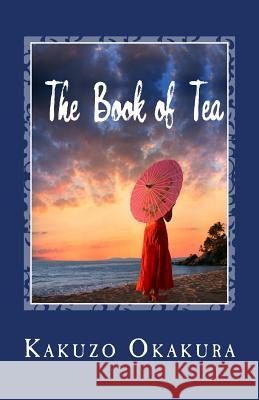The Book of Tea » książka
The Book of Tea
ISBN-13: 9781494885281 / Angielski / Miękka / 2014 / 50 str.
The Book of Tea
ISBN-13: 9781494885281 / Angielski / Miękka / 2014 / 50 str.
(netto: 35,56 VAT: 5%)
Najniższa cena z 30 dni: 35,16 zł
ok. 13-18 dni roboczych.
Darmowa dostawa!
Kakuzo Okakura (1862-1919) was born in a Japan that had seen Commodore Perry but had not yet renounced the Shogunate. By the end of his life he had seen the Great War and Japan's first imperialistic military adventures in Korea and Manchuria that would culminate in the tragedy of the Second World War. The scion of Japanese aristocracy, Okakura chose to spend the latter half of his life as an expatriate living in Boston, Massachusetts, where he befriended the Brahmins of that city. Written in the early 1900's for an American audience, The Book of Tea eloquently introduced the Boston bluebloods to an idealized vision of Japan, the Japan of cherry blossoms, kakemono, and Chanoyu, the Tea Ceremony. Reading The Book of Tea, one realizes that Okakura was not "selling" Japan to the West. The Book of Tea does not engage in any lacquer-box hucksterism. Rather, the book is Okakura's paean to and his lament for a Japan of the virtues that was all-too-rapidly being consumed by Occidentally-intoxicated militarists and industrialists. The Book of Tea was written to banish the soot-stained chrysanthemums of Okakura's deepest nightmares.











